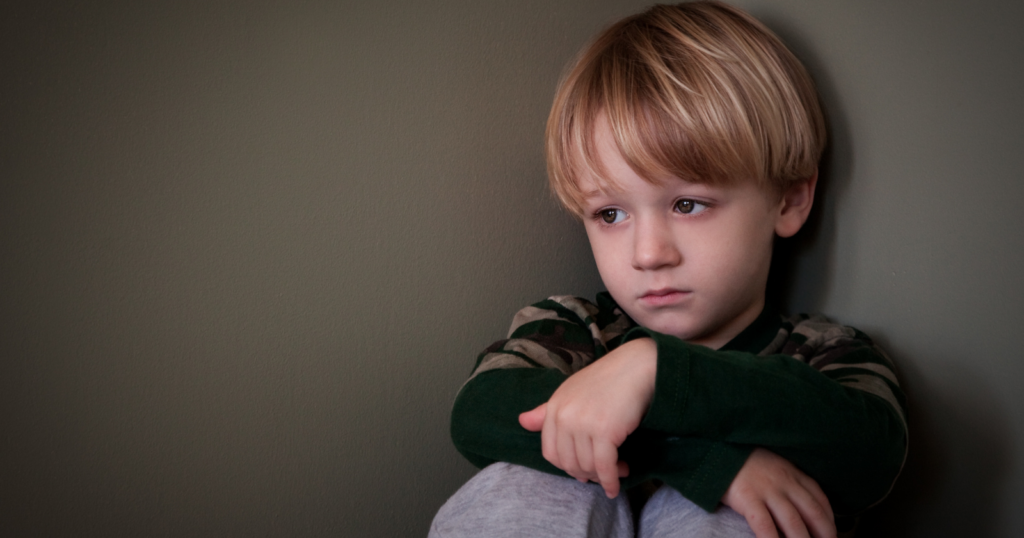Some wounds don’t show up until years later.
You can make it all the way into adulthood, holding down a job, paying your bills, building a life—and still carry around the quiet ache of not having felt loved when you were young.
Not everyone who lacked love in childhood becomes bitter or broken. But many do walk through life with certain patterns—subtle behaviors that trace back to those early emotional absences.
Here are ten of those behaviors I’ve seen over the years. If you recognize a few of them in yourself or someone close to you, don’t take it as criticism. Just take it as understanding. That’s how healing starts.
1. They struggle to believe they’re lovable without earning it
If you grow up never feeling truly loved, you learn early on that affection has to be “deserved.” Through achievement. Through people-pleasing. Through being quiet or helpful or never making waves.
So as an adult, they don’t feel comfortable just being loved for who they are.
They over-function in relationships. They apologize too much. They assume they have to be impressive or agreeable to be worthy.
They never got the message that love could be unconditional—so they’re still trying to “deserve” it.
2. They have a hard time trusting compliments
You say something kind to them, and they immediately deflect. Brush it off. Downplay it. Change the subject.
That’s not humility. That’s disbelief.
When someone grows up without consistent affirmation, compliments feel foreign. They don’t know how to absorb praise because they never learned how to believe it.
So instead of feeling seen, they feel suspicious—or worse, unworthy.
3. They panic when someone gets too close
Love feels good… until it feels dangerous.
Because if the people who were supposed to love you didn’t, your brain learns that closeness comes with pain.
So even when they find someone who’s kind, safe, and steady, they might pull away. Pick fights. Disappear. Or keep people at arm’s length emotionally.
It’s not rejection—it’s protection.
They don’t want to lose something they never really believed they deserved in the first place.
4. They often take on too much responsibility for other people’s emotions
These are the folks who feel like it’s their job to keep everyone else okay.
They grew up in homes where emotions weren’t managed well—or where love was tied to how “useful” they were.
So now, as adults, they over-caretake. They fix. They absorb blame. They walk on eggshells.
Because somewhere deep down, they believe that if they don’t hold everything together, they’ll lose whatever love they’ve managed to build.
5. They don’t know how to ask for what they need
Asking feels risky.
When you weren’t shown consistent love as a child, you learn early that your needs might be too much—or simply ignored.
So you learn to go without. To shrink your desires. To take care of everyone else first.
As adults, they often say, “It’s fine, I’m fine,” even when they’re running on empty.
Not because they don’t have needs—but because they’re terrified of being told those needs are a burden.
6. They over-apologize
They say sorry for things that don’t require an apology.
Sorry for speaking. Sorry for being five seconds late. Sorry for having an opinion.
It’s not about manners. It’s about fear.
When love in childhood was inconsistent or conditional, they learned that mistakes—big or small—could cost them everything.
So they try to head off rejection before it hits.
7. They attach quickly and detach suddenly
When they meet someone who gives them attention or warmth, they light up. Get attached fast. Pour everything in.
But just as quickly, they might shut down or ghost.
Because the fear of abandonment is always lurking. And sometimes it feels safer to leave first than to wait for someone to walk away.
It’s not flaky. It’s trauma in disguise.
8. They minimize their accomplishments
These are the folks who shrug off big wins. Downplay their success. Act like it’s no big deal.
Why? Because deep down, they don’t feel like it counts. Or like they count.
When you weren’t celebrated as a child, it’s hard to internalize pride later in life.
You keep moving the goalposts. Keep telling yourself it wasn’t enough.
And sometimes, you miss out on your own joy.
9. They stay in relationships longer than they should
Because when you grow up without love, any attention—even toxic attention—can feel better than being alone.
So they tolerate disrespect. Make excuses for bad behavior. Confuse chaos with passion.
They don’t stay because they don’t see the red flags.
They stay because the absence of love is scarier than its unhealthy form.
10. They have a hard time believing people won’t leave
Even in stable relationships—romantic, platonic, or professional—they often carry a quiet fear that one day, the rug will get pulled out from under them.
So they might test people. Push them away. Or give too much, too fast, hoping to secure the connection.
It’s not that they want drama. It’s that they’ve never known what it feels like to be fully safe in someone else’s care.
And until they do that work, love will always feel like something fragile—even when it isn’t.
Something I’ve witnessed more than once
Years ago, I worked with a guy named Mark. Smart as a whip, generous to a fault, the kind of person who remembered everyone’s birthday and always brought donuts to meetings.
But every time someone thanked him, he waved it off. And every time someone tried to get close, he’d retreat.
One night after a long shift, we sat in the breakroom and he said, “You know what’s funny? I don’t think my dad ever once told me he was proud of me. Not even when I graduated.”
That line sat with me for a long time.
Because everything Mark did—every act of kindness, every joke, every project he threw himself into—felt like it was fueled by this deep, aching need to be seen.
He wasn’t a mess. He wasn’t broken.
He was just a grown man still trying to answer a question he’d carried since childhood:
“Am I worthy of love?”
Final thought
Not everyone who had a rough childhood walks around in pain.
But many carry quiet habits that reveal old wounds.
If you recognize some of these behaviors in yourself, take heart. They’re not permanent. They’re patterns. And patterns can change.
You’re not too old to rewrite the script.
You’re not too far gone to feel safe in your own skin.
And you’re not alone in this.
You deserved love then.
You deserve it now.
And the more you believe that, the more those old habits start to loosen their grip.







